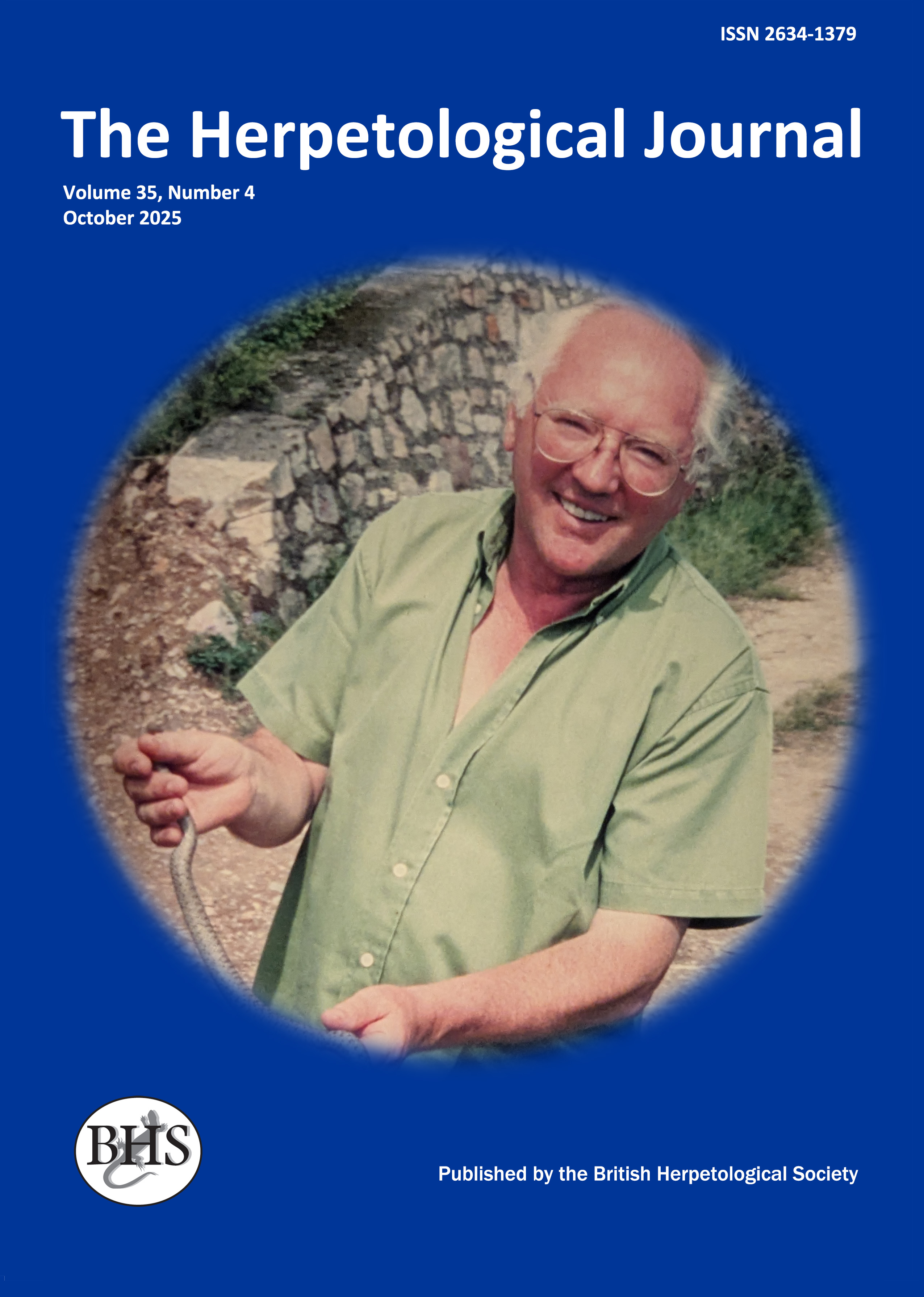
The Herpetological Journal
The Herpetological Journal is the Society's prestigious quarterly scientific journal. Articles are listed in Biological Abstracts, Current Awareness in Biological Sciences,Current Contents, Science Citation Index, and Zoological Record.
ISSN 0268-0130
2023 Impact Factor for the Herpetological Journal is 1.1, with the Journal sitting just below Quartile 2 in Zoology, at percentile 46.9
pdf 05. GPS-telemetry as a method to assess nest attendance by a female broad-snouted caiman Caiman latirostris
24 downloads
Subscription / purchase required
DOI: https://doi.org/10.33256/34.3.237243
pp. 237-242
AUTHORS: Paulo B. Mascarenhas-Junior, Rafael S.L. Barboza, Malu Caminha, Gabriela Lucena, Carlos F. Rodrigues, Pedro Ivo Simões & Jozelia Maria de Sousa Correia
ABSTRACT: Crocodylians exhibit parental care, guarding their eggs during incubation to ensure offspring survival. We present the first description of nest attendance of a wild broad-snouted caiman using GPS-telemetry. During the reproductive season of 2022, we tracked a 1.8-metre female in the Tapacurá reservoir, a water source bordered by Atlantic Forest remnants and human settlements in north-eastern Brazil. Telemetry data revealed that 75.8% of the female’s position records were near the nest, suggesting parental care and nest protection. However, the female periodically returned to water. We observed no differences in proximity to the nest between day and night-time, which could be possibly related to different egg predators in the area foraging at different times of the day. Furthermore, the period when the nest was unattended could be associated with either feeding activities or avoidance of human presence. This research brings light on an important part of the reproductive behaviour of broad-snouted caimans in their natural environment, highlighting the importance of GPS-telemetry as a tool for monitoring reproductive behaviour of crocodylians, while contributing to understanding their biology under human-influenced settings.
Keywords: Atlantic Forest, crocodylian, movement, parental care, reproductive biology

